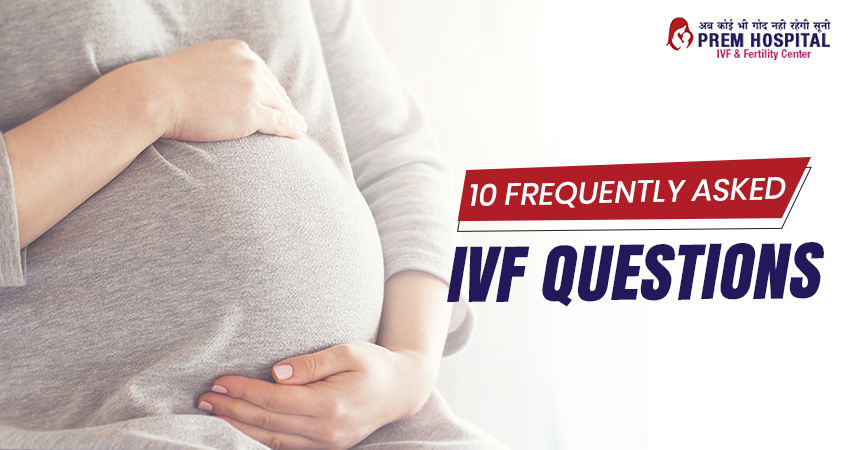When it comes to giving birth to a baby, no other technology has achieved success than IVF or you can call test tube baby treatment. Around 5 million people till now have completed their family through IVF and this figure is expected to grow significantly in coming years. Although everyone has heard the name of IVF, still most have the wrong information about it. The main aim of this article is to answer the most common questions related to IVF treatment for pregnancy that usually comes to your mind. Also, you can ask these questions to the IVF specialist in your first visit to her center.
What is IVF treatment?
IVF is based on assisted reproductive technology (ART) in which a combination of eggs and sperm is done externally in a laboratory. If the fertilization of eggs happens in the lab and cell division starts, the embryo is transferred to the patient’s uterus. The embryo then hopefully sticks to the uterus lining and forms a healthy infant. These embryos can even be kept in a deep freezer for further use.
For how long should I wait before visiting an IVF center?
It is recommended to visit a doctor if you are unable to conceive after one year of continuous unprotected attempts. Usually, 90% of couples become pregnant after trying for one year. If you come under the remaining 10% then you must visit a fertility center to take proper treatment. Women who have crossed 30 years and are unable to conceive after six months of regular intercourse are recommended to visit the fertility center. And women above their 40s are suggested to visit the fertility center when they decide to have a child.
Is IVF affordable?
Such treatments are expensive but it doesn’t imply that it is out of your reach. In the U.S. there is a greater understanding regarding IVF and most of the insurance companies are now covering this treatment. You can also check with your insurance company regarding this. Also, look for other options related to IVF grants and financing. Before you go with the IVF option, check with your insurance company and know about the overall pricing with the fertility center. They can let you know about the solutions which you can afford.
What is the success rate of IVF?
As per the research done by the Centre for Disease Control, the success rate of IVF through your eggs drops after 30+ age and significant dips in the mid-30s and early 40s because of degradation in quantity and quality of eggs. Go with IVF treatment in Meerut they have a success rate for IVF treatment. Along with age, the IVF success rate also depends on the height, weight, sperm count, infertility diagnosis, and reproductive histories like previous miscarriages, births, and pregnancies.
Does IVF result in multiples and twins?
Usually, physicians transfer multiple embryos in the uterus to enhance the fertility chances, as it is difficult to determine which embryo is healthy. This process sometimes results in multiples.
However, technology like blastocyst culture and PGS/CCS has reduced the chance of multiples. In fact, because of health risks associated with multiples, specialists don’t prefer the implantation of multiple embryos in one go unless it is necessary.
Does IVF involve any restrictions on a patient?
Yes, there are some basic guidelines that a patient must follow before undergoing IVF treatment for pregnancy.
- Smoking: It is advised that both partners should quit smoking before 3 months of undergoing treatment. The impact of tobacco may reflect in women’s eggs.
- Drinking: Quit alcohol consumption before undergoing IVF treatment. Even if you become pregnant you should not drink alcohol for incomplete pregnancy duration.
- Medications: If you are taking any medicines then you should let the specialist know about them. Certain medications can have an impact on fertility medication and some may be safe to take.
- Vigorous Exercise: Intense exercises like weight lifting, aerobics, and running are not suggested during ovarian stimulation and until you become pregnant.
- Supplements: Herbal supplements are not recommended during the IVF process.
Which eggs are better frozen or fresh?
Earlier, the success rate of fresh eggs was considered higher than the frozen one as the damage risk increases in the thawing process. However, because of vitrification (freezing of eggs and embryos) technology, the chances of embryo survival have become 90%. This implies the success rate with frozen eggs has become comparable with that of fresh eggs.
Are there any side effects of IVF?
Because of fertility medications, the patient may experience mood swings, abdominal pain, or bloating. Potential side effects include:
- Mild bloating
- Mild cramping
- Passing of red-colored fluid or blood after the procedure
- Constipation
Is IVF required? I am not trying for pregnancy right now.
Some women opt to preserve their fertility for the future. By preserving eggs when they are in their early or mid-thirties, they preserve to become biological parents of their child in the future.
Does IVF imply I need to stop working?
IVF procedures are minimally invasive and are performed externally. While doctors advise patients to avoid over-exertion tasks, most patients can work the next day after egg retrieval and can do their regular exercise routine after their next menstrual cycle.

